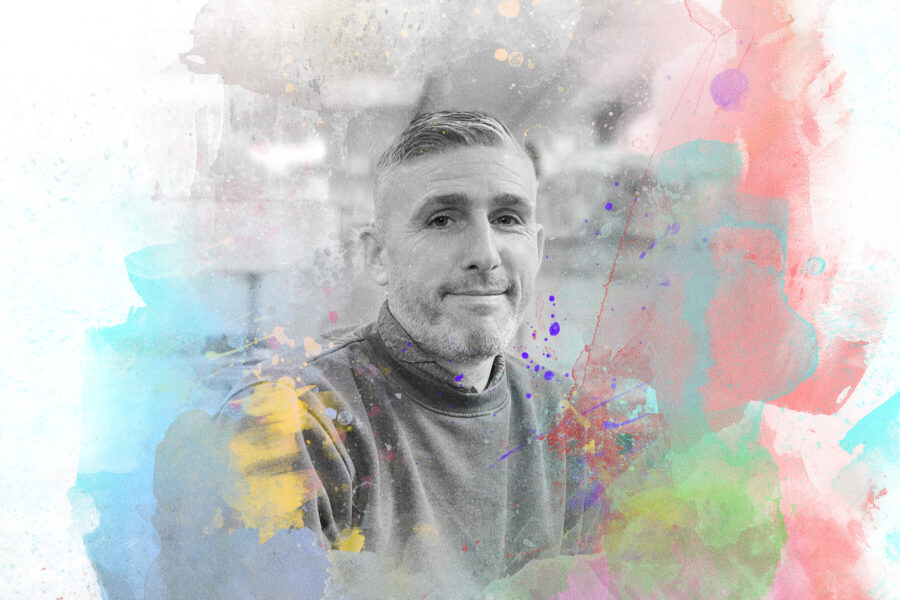PAUL HUMPHREYS
CLD – COMMUNITY NOT COMPETITION

PAUL HUMPHREYS
CLD – COMMUNITY NOT COMPETITION


PAUL HUMPHREYS
CLD – COMMUNITY NOT COMPETITION
When Paul Humphreys was a boy in the 1980s, he grew up in Glasgow’s east end. Times were tough for local families and life wasn’t easy. But when Paul was about 8 years old he went along to a local youth club in Easterhouse for the first time, never dreaming that it would lead him on a path to a successful career in community, learning and development (CLD), and even become his future workplace.
When Paul Humphreys was a boy in the 1980s, he grew up in Glasgow’s east end. Times were tough for local families and life wasn’t easy. But when Paul was about 8 years old he went along to a local youth club in Easterhouse for the first time, never dreaming that it would lead him on a path to a successful career in community, learning and development (CLD), and even become his future workplace.
When Paul Humphreys was a boy in the 1980s, he grew up in Glasgow’s east end. Times were tough for local families and life wasn’t easy. But when Paul was about 8 years old he went along to a local youth club in Easterhouse for the first time, never dreaming that it would lead him on a path to a successful career in community, learning and development (CLD), and even become his future workplace.
Without knowing it at the time, Paul was exposed to how communities can be supported and connected through the practice of CLD.
Years later, in 2007, Paul joined FARE Scotland as a sessional youth worker. FARE is an organisation dedicated to helping communities thrive and free people from the effects of poverty. This is where his journey in CLD really began – there was lots of learning whilst working to support families and young people who were struggling, tackling poverty and looking at the inequalities of families in Glasgow’s east end area.
A few years later, Paul went on to study Community Education at university and gained an honours degree in 2016 – an achievement he would never have thought possible as a young lad.
Paul’s story is like many others’ in the youth work field. His own experience of what it’s like to grow up in an area of deprivation, seeing first-hand the struggles disadvantaged communities face, helps him understand and support the young people he works with.
These days, Paul is the Attainment and Skills Manager and Depute CEO at FARE Scotland. His main role is managing the schools’ team which provides youth workers in 22 secondary schools in Glasgow and 2 in East Renfrewshire. He says that the best part of his job is seeing the impact youth work has made on so many young people over the years.
“When you can see communities flourish and have a voice for themselves, that’s what makes the job worthwhile.”
After Paul gained his university qualifications, he became a member of CLD Standards Council Scotland. He is now also a member of the CLD Standards Approvals Committee, approving qualifications and training for the CLD sector.
“CLD is about collaboration. We collaborate with many other organisations, because no one organisation can tackle everything by themselves.” Paul explains.
This is one of the reasons Paul encourages anyone working in the CLD sector to register as a member of the CLD Standards Council.
“Being a community worker, you become a voice for the community and you have to use it. We want to make sure that CLD practitioners keep learning and growing, are ahead of the curve to see what’s coming up and how you can best support communities.” he said.
Paul is clear that this is a collaborative process, “It’s about shared practice too. We are all pulling in the same direction, but we shouldn’t be competing. Sharing knowledge to support other communities and to help ensure that CLD is embedded across every community is so important.”
